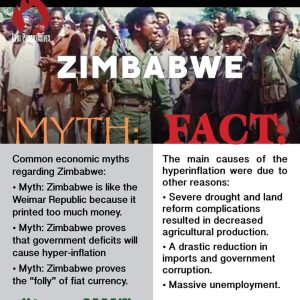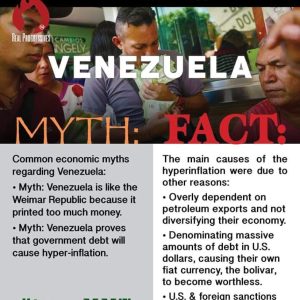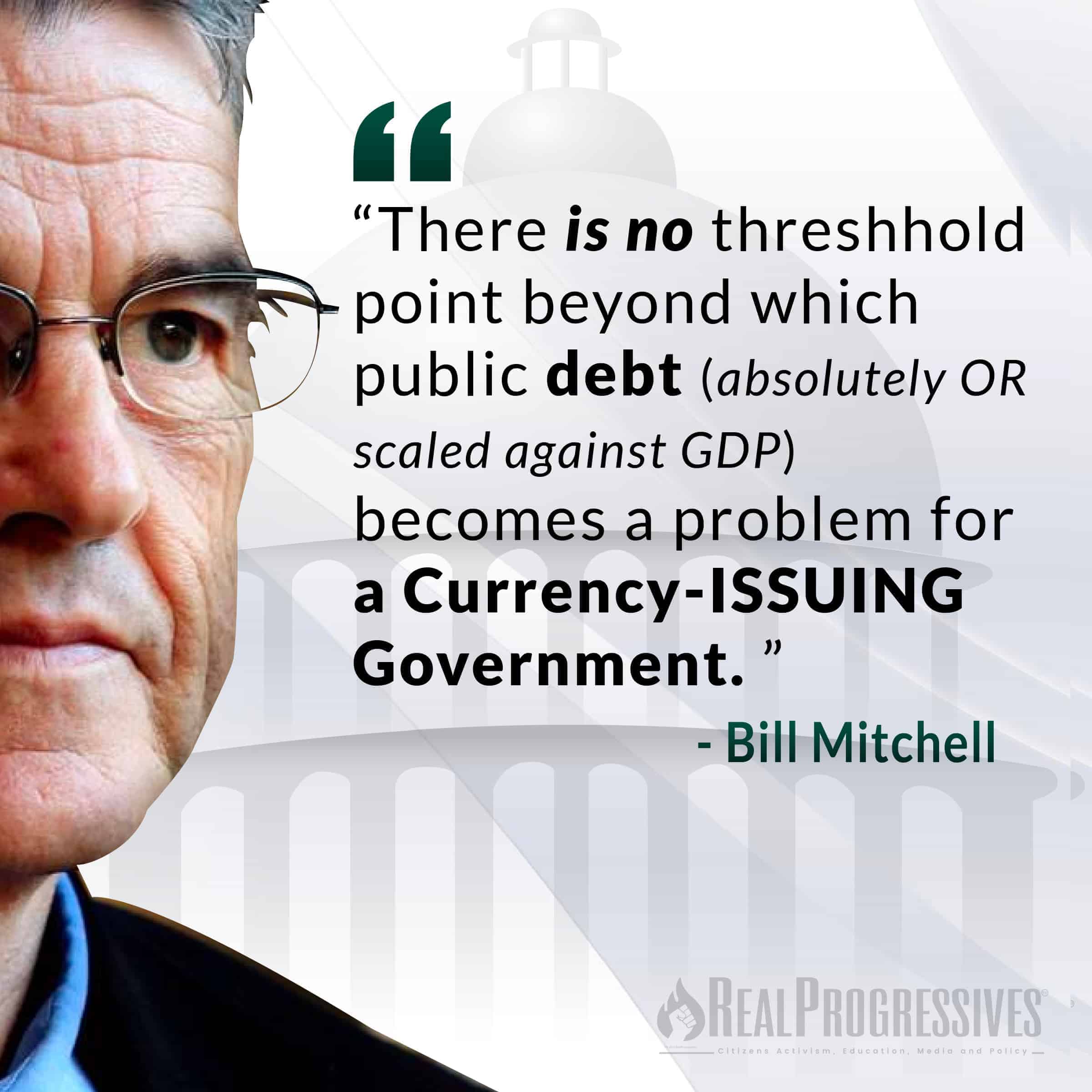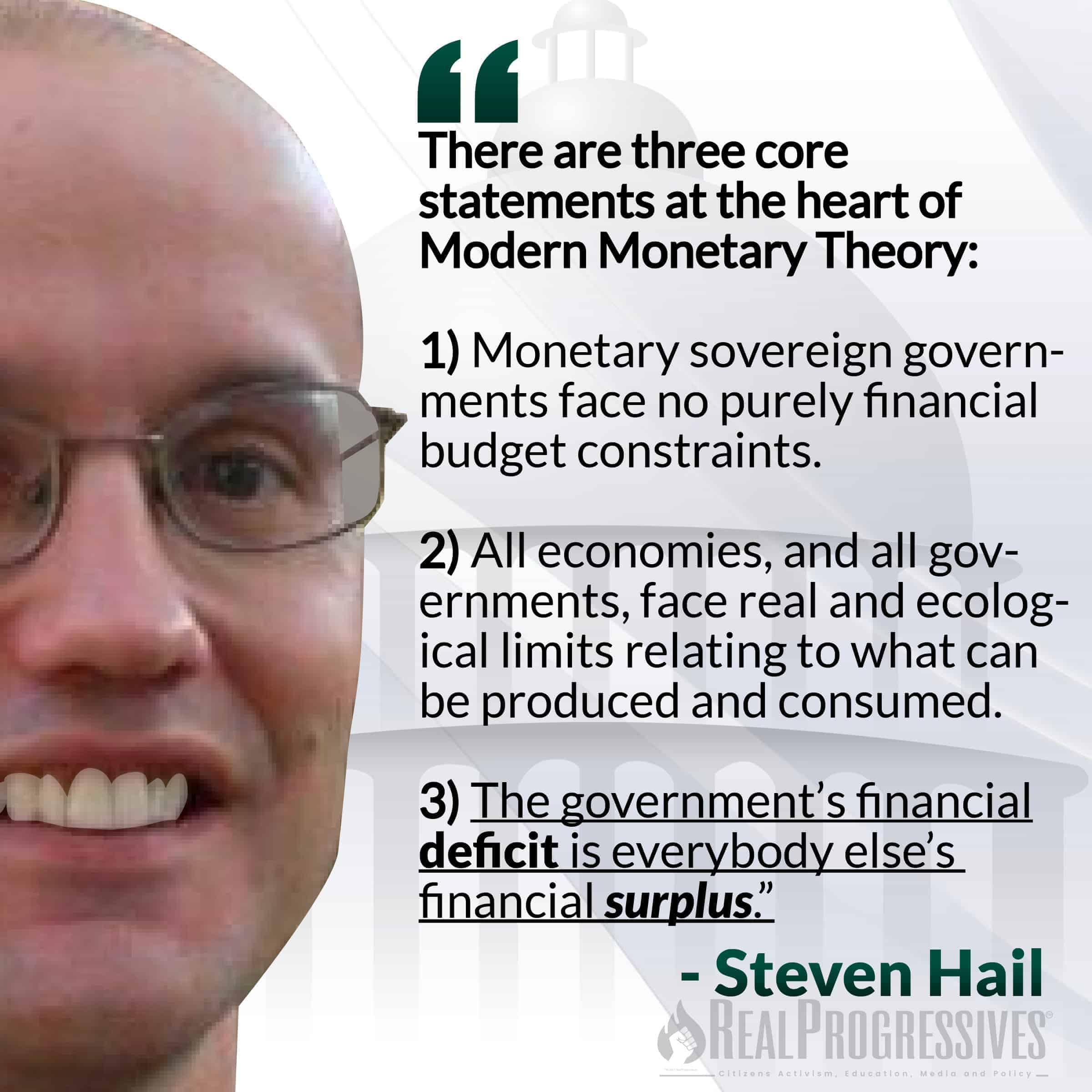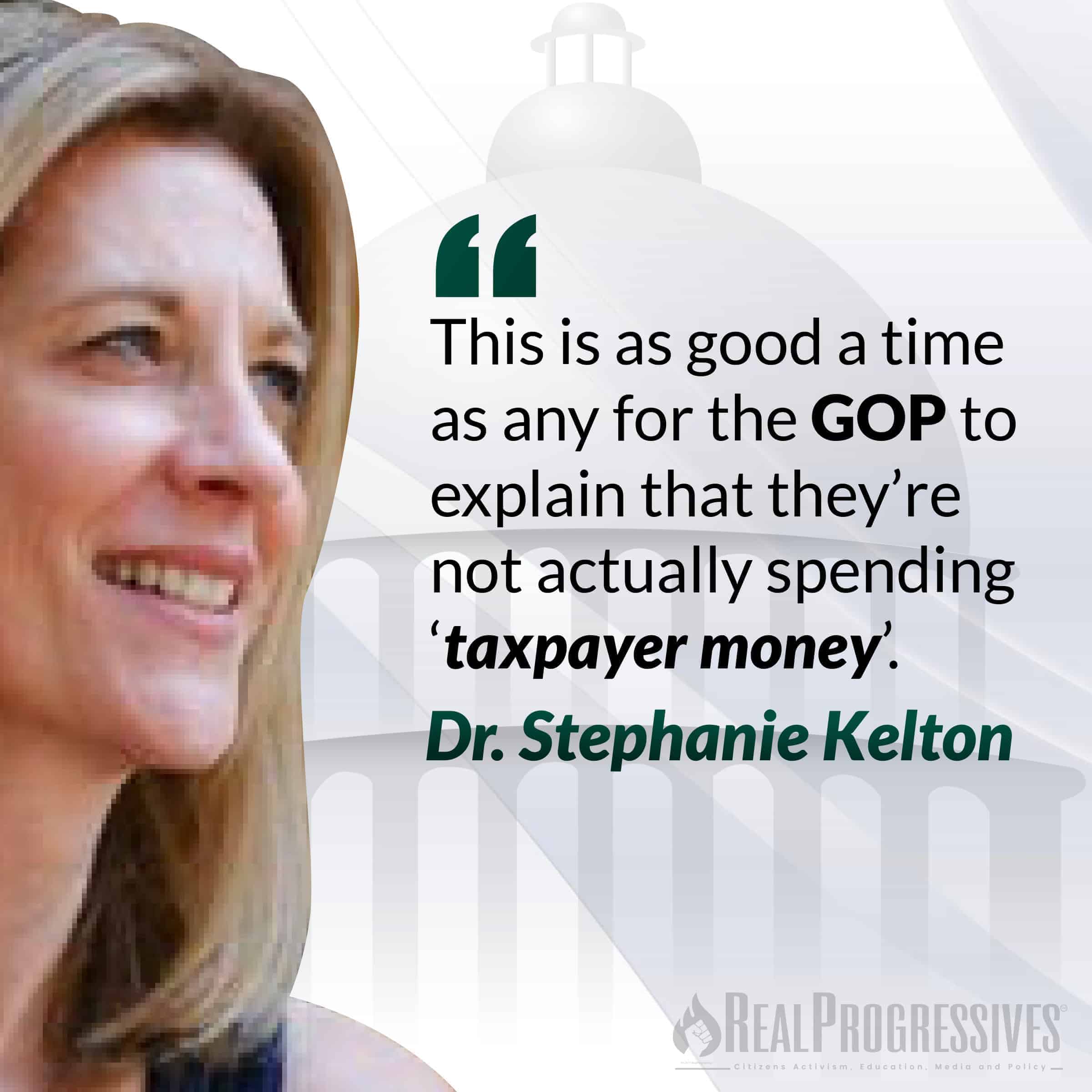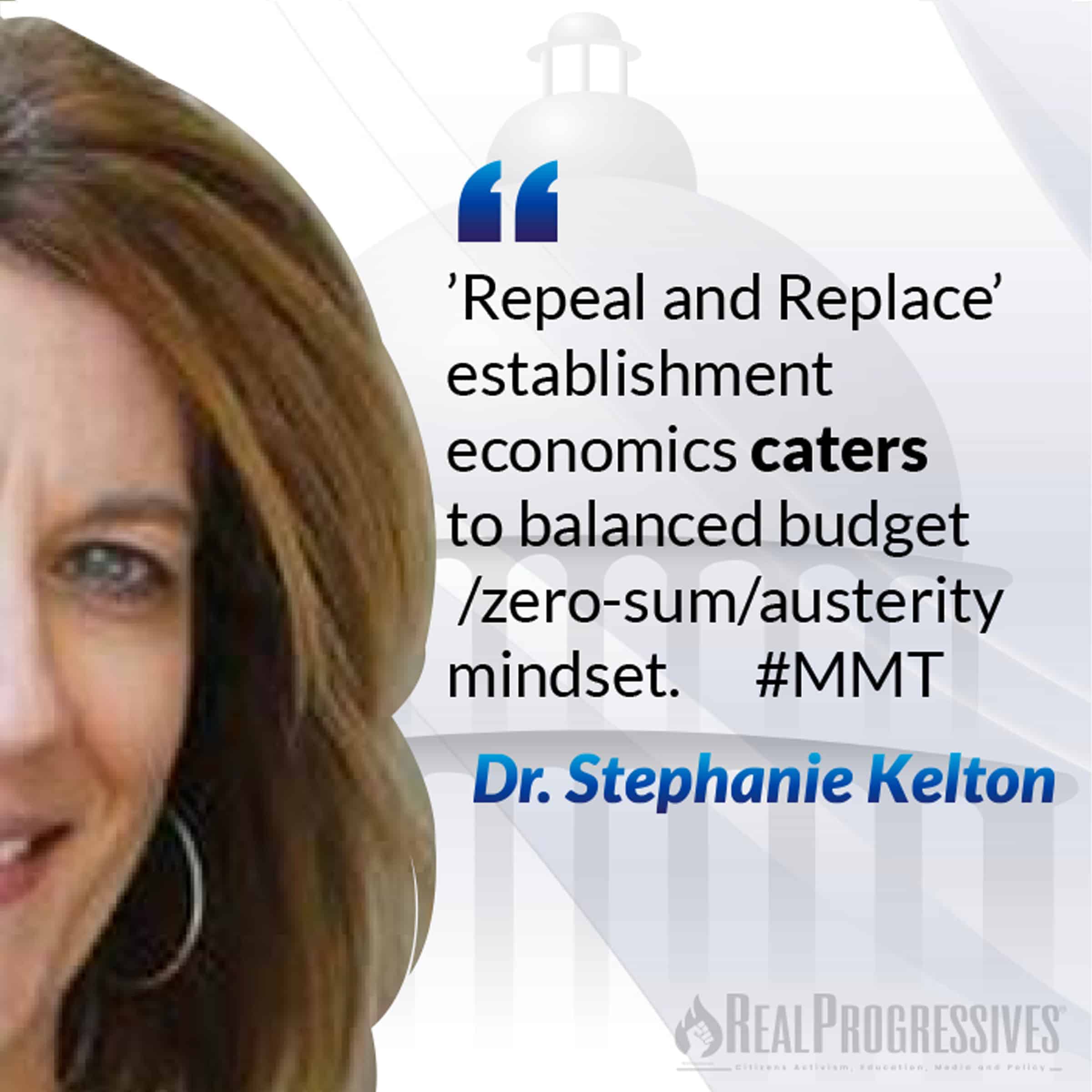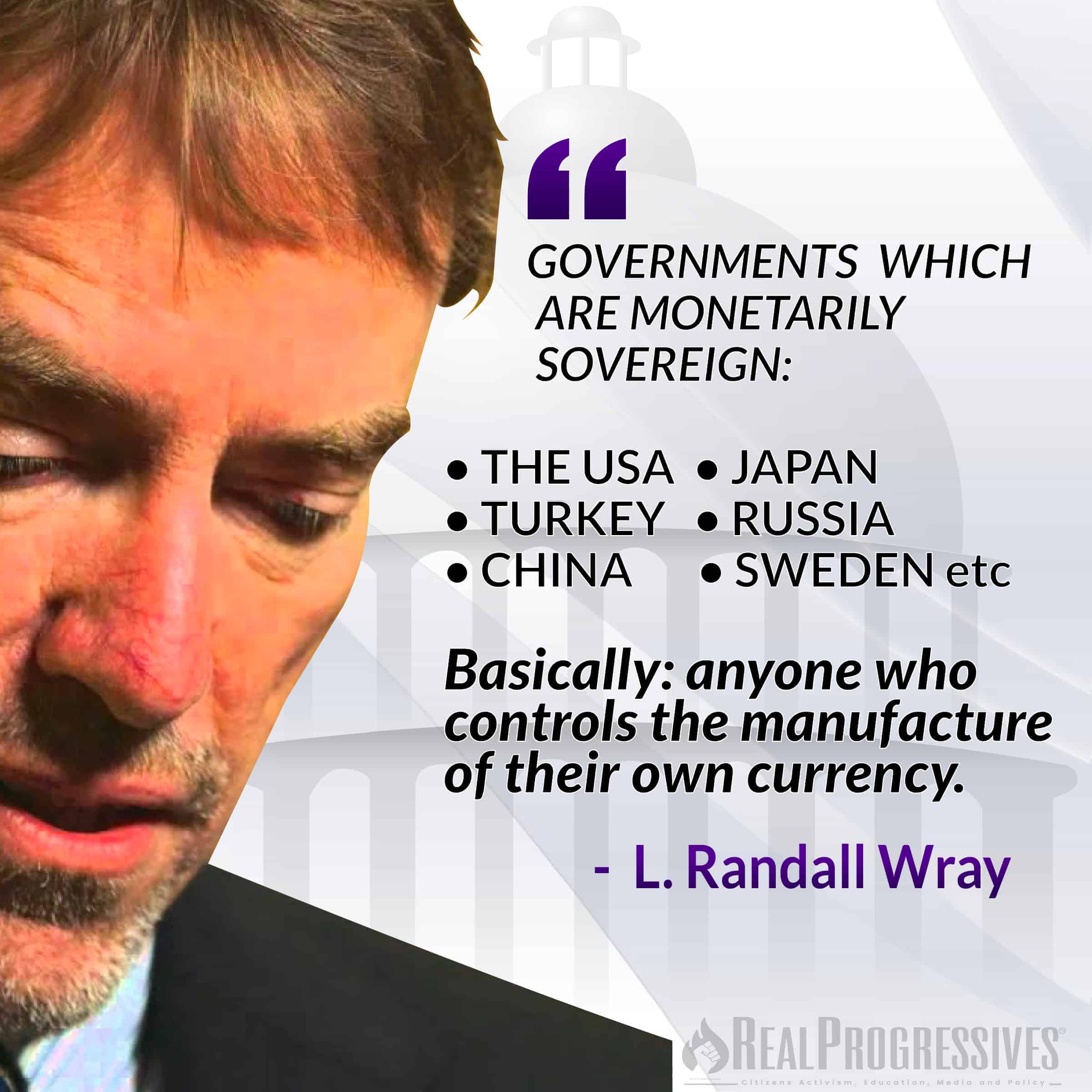Modern Monetary Theory - MMT
What is MMT and how could it completely change your perception of life in a nation with a sovereign fiat currency? Looking for MMT resources in other languages? Try our INTERNATIONAL MMT RESOURCES page.
"If we just keep printing money, we'll devalue the dollar!"
"Printing money will cause inflation!"
"OhEmGee the National Debt!!"
We've all heard loads of rumors...now it's time to get the truth!
Use the arrows or swipe through the slides to learn more.
It's not something to implement someday, it is exactly how our money works TODAY!!
The currency issuer is not constrained to balanced budgeting in the same way as a currency user.
No matter what politicians or talking heads on TV say, when a country issues its own sovereign currency, it can never run out.
That would be like the scorekeeper in baseball running out of points! Crazy, right?
As a matter of fact, in order for us to pay taxes in the first place, the government, the CURRENCY ISSUER, has to create (or spend into existence) the money. Then, we CURRENCY USERS have to find a way to get some money to pay our taxes.
Most governments, most of the time, will run fiscal deficits. This is not a matter of concern, and is indeed a good thing, as it means most private sectors will be able to run the financial surpluses they wish to add to their net savings.
The government’s deficit is our surplus – we should be glad all that money hasn’t been taxed out of the economy!
Browse our MMT focused articles and filter them using the tabs at the top to find a specific topic.
Browse our MMT focused articles and filter them using the dropdown tab at the top to find a specific topic.
- All Articles
- Federal Reserve
- Hyperinflation
- Inflation
- Job Guarantee
- MMT 101
- MMT Academics
- MMT Rebuttal
- National Debt
- Social Security
- Taxation
- All Articles
- Federal Reserve
- Hyperinflation
- Inflation
- Job Guarantee
- MMT 101
- MMT Academics
- MMT Rebuttal
- National Debt
- Social Security
- Taxation
MMP Blog #39: MMT for Austrians: Disagreements Among Reasonable People
L. Randall Wray December 27, 2023 * New Economic Perspectives MMT Primer
A response to John Carney’s published works because I think they are the most cogent MMT critiques the Austrians have to offer.
MMP Blog #38: MMT for Austrians
L. Randall Wray December 27, 2023 * New Economic Perspectives MMT Primer
MMT is not just for advocates of big government. I have always been surprised that some of the most vehement critics of MMT are libertarians and Austrians.
MMP Blog #36: What Government Ought to Do: An Introduction
L. Randall Wray December 27, 2023 * New Economic Perspectives MMT Primer
I will be making policy recommendations that are consistent with MMT. You do not have to like mine; you can come up with your own.
MMP Blog #35: Functional Finance: A Conclusion
L. Randall Wray December 27, 2023 * New Economic Perspectives MMT Primer
Let’s finish up the discussion of Lerner’s functional finance approach addressing two issues: functional finance and developing nations and also the functional finance approach to trade deficits.
MMP Blog #33 Responses
L. Randall Wray December 27, 2023 * New Economic Perspectives MMT Primer
Comments and responses on the Modern Money Primer Part 33.
MMP Blog #32: Milton Friedman’s Version of Functional Finance: A Proposal for Integration of Fiscal and Monetary Policy
L. Randall Wray December 27, 2023 * New Economic Perspectives MMT Primer
Milton Friedman was a conservative economist and a vocal critic of “big government” and of Keynesian economics. Yet, in 1948 he made a proposal that was almost identical to Lerner’s functional finance views.
MMP Blog #32 Responses
L. Randall Wray December 27, 2023 * New Economic Perspectives MMT Primer
Comments and responses on the Modern Money Primer Part 32.
MMP Blog #31 Responses
L. Randall Wray December 27, 2023 * New Economic Perspectives MMT Primer
Comments and responses on the Modern Money Primer Part 31.
MMP Blog #30 Responses
L. Randall Wray December 27, 2023 * New Economic Perspectives MMT Primer
Comments and responses on the Modern Money Primer Part 30.
MMP Blog #28: Government Spending with Self-Imposed Constraints
L. Randall Wray December 27, 2023 * New Economic Perspectives MMT Primer
Even if the government ties its hands behind its back and its shoes together, it makes no difference – the balance sheets still balance.
MMP Blog #28 Responses
L. Randall Wray December 27, 2023 * New Economic Perspectives MMT Primer
Comments and responses on the Modern Money Primer Part 28.
MMP Blog #27 Responses
L. Randall Wray December 27, 2023 * New Economic Perspectives MMT Primer
Comments and responses on the Modern Money Primer Part 27.
Why we need to debunk the 'deficit myth' - BBC REEL
Government spending is increasing at an unprecedented rate to deal with the effects of the coronavirus pandemic. Many people worry this could burden future generations.
However, economist Stephanie Kelton, author of The Deficit Myth, argues that we need to rethink our attitudes towards government spending.
Could Modern Monetary Theory help us navigate our way out of this crisis – and even help build a fairer economy?
Producer: Dan John
Animation: Jacqueline Nixon
(Republished with permission from the BBC)
Weaponizing knowledge, one mind at a time.
Visit our seven focused Knowledge Areas.


















